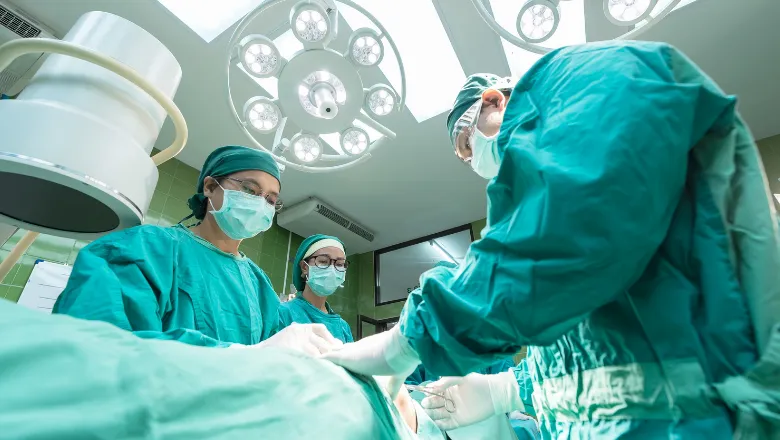The results of our study support the use of metabolic surgery as a treatment of NASH, a condition for long considered orphan of effective therapies
Professor Geltrude Mingrone, Professor of Diabetes and Nutrition at the school of Cardiovascular and Metabolic Medicine & Sciences
21 April 2023
Surgery most effective treatment of metabolic liver disease
Metabolic (bariatric) surgery is more effective than medications and lifestyle interventions for the treatment of advanced non-alcoholic fatty liver disease.

A new paper, published today in The Lancet by King’s and the Catholic University of Rome, is the first to compare three active treatments of non-alcoholic Steatohepatitis (NASH) and to specifically investigate the effectiveness of metabolic surgery (weight loss surgery) in a randomised clinical trial.
Non-Alcoholic Fatty Liver Disease (NAFLD) is the most common cause of chronic liver disease, globally affecting 55% of people with type 2 diabetes and 75% of those with obesity. Non-alcoholic steatohepatitis (NASH) is the progressive form of the disease and is characterised by liver cell injury and inflammation, which induce liver fibrosis (scarring of the tissue). Left untreated, it can lead to liver failure and liver cancer, and is one of the leading causes of liver transplant in the western world. NASH also increases risk of cardiovascular disease and overall mortality in patients with obesity or type 2 diabetes. NAFLD/NASH currently affects 12% of adults in the UK; in the USA it is estimated that the condition will affect 27 million people by 2030.
The multi-centre randomised trial was conducted in Italy. The trial compared the efficacy of bariatric and metabolic surgery versus lifestyle modifications and best current medical care in 288 patients.
Pre- and post operative liver biopsies showed that surgery was more effective in inducing complete reversal of inflammation and cell damage in the liver - the core characteristics of NASH - without worsening of liver fibrosis after 1 year from surgery. The probability of achieving reversal of NASH was 3–5 times higher with metabolic surgery than with medical care. Surgery was also more effective at achieving improvement of at least one stage of liver fibrosis, another pre-specified endpoint of the trial. The two surgical procedures appeared to equally improve NASH.
Researchers say the ability of surgery to control and even improve fibrosis associated with NASH is of special clinical relevance as fibrosis is the main predictor of liver complications and poor cardiovascular outcomes and death in patients with NASH.
Professor Francesco Rubino, a senior co-investigator and Chair of Bariatric and Metabolic Surgery at King’s College London, said: “The presence of NASH predicts a significant risk of complications and mortality in people with severe obesity and type 2 diabetes. The results of this study provide a compelling case for prioritisation of metabolic surgery in this patient population”.
Compared to conventional medical treatment, surgery also resulted in better overall health benefits. While both surgical procedures seemed to equally improve NASH, the gastric bypass group was more effective than sleeve gastrectomy at improving type 2 diabetes and reducing other cardiovascular risk factors associated with NAFLD/NASH.


